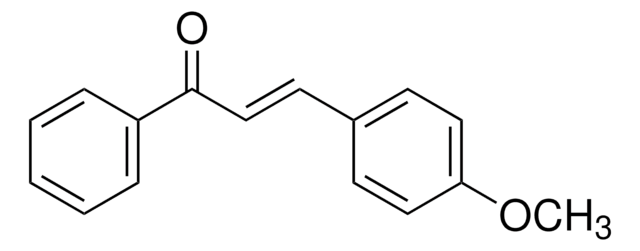1.60309
Sodium hydroxide solution
c(NaOH) =0.01 mol/l (0.01 N), Titripur®, Reag. USP
Synonym(s):
Sodium hydroxide solution
About This Item
Recommended Products
Product Name
Sodium hydroxide, 0.01 M NaOH (0.01 N), Titripur®, reag. USP
Agency
reag. USP
Quality Level
vapor pressure
3 mmHg ( 37 °C)
product line
Titripur®
form
liquid
quality
Analyzed in our ISO 17025 accredited QC lab
reaction suitability
reaction type: Acid-base reactions
packaging
Titripac® of
concentration
0.01 M NaOH (0.01 N)
technique(s)
titration: suitable
storage temp.
15-25°C
SMILES string
[OH-].[Na+]
InChI
1S/Na.H2O/h;1H2/q+1;/p-1
InChI key
HEMHJVSKTPXQMS-UHFFFAOYSA-M
Looking for similar products? Visit Product Comparison Guide
Related Categories
Application
- Improvement of durability and drying shrinkage of sodium carbonate activated slag through the incorporation of calcium hydroxide and sodium hydroxide.: This study investigates the effects of incorporating sodium hydroxide and calcium hydroxide into sodium carbonate activated slag. The results show significant improvements in the durability and drying shrinkage properties of the material, making it a viable option for construction applications where enhanced performance is required (Construction and Building Materials, 2020).
- Effect of Sodium Silicate to Hydroxide Ratio and Sodium Hydroxide Concentration on the Physico-Mechanical Properties of Geopolymer Binders.: This study investigates the influence of the sodium silicate to sodium hydroxide ratio and the concentration of sodium hydroxide on the mechanical properties of metakaolin-based geopolymer binders. The results indicate that both the ratio and concentration significantly affect the compressive and flexural strength of the binders, providing valuable insights for optimizing geopolymer formulations (East African Journal of Engineering, 2023).
- Effect of Sodium Hydroxide, Liquid Sodium Silicate, Calcium Hydroxide, and Slag on the Mechanical Properties and Mineral Crystal Structure Evolution of Polymer Materials.: This research examines the roles of sodium hydroxide, liquid sodium silicate, calcium hydroxide, and slag in the development of mechanical properties and mineral crystal structures in polymer materials. The study reveals that sodium hydroxide is essential for creating a strongly alkaline environment that promotes the formation of beneficial mineral crystals, thereby enhancing the compressive strength of the materials (Crystals, 2021).
- Effects of Sodium Hydroxide and Calcium Hydroxide on the Phase Equilibria of Methane Hydrates.: This study explores the impact of sodium hydroxide and calcium hydroxide on the phase equilibria of methane hydrates. The findings provide insights into how these compounds influence hydrate stability and formation, which is critical for applications in natural gas storage and transportation (SSRN Electronic Journal, 2022).
Features and Benefits
This volumetric solution is analyzed by our calibration laboratory D-K-15185-01-00 which is accredited according to DIN EN ISO/IEC 17025 for analysis of amount-of-substance concentrations in volumetric solutions by DAkkS (Deutsche Akkreditierungsstelle - German National Accreditation Body). The accreditation certificate can be found at www.sigmaaldrich.com/ISO17025.
Packaging
Analysis Note
Amount-of-substance concentration 0.00995 - 0.01005 mol/L
Measurement uncertainty ± 0.00003 mol/L
Traceability NIST SRM
The concentration is determined by volumetric titration and refers to 20°C.
The amount-of-substance concentration of this volumetric solution is determined with standardized hydrochloric acid solution (article number 1.09060). The hydrochloric acid solution is standardized and traceable to a primary standard reference material (SRM) from the National Institute of Standards and Technology, Gaithersburg, USA (NIST SRM 723 Tris(hydroxymethyl)aminomethane) by means of volumetric standard Tris(hydroxymethyl)aminomethane (article number 1.02408), certified reference material according to ISO 17034, analyzed by our accredited calibration laboratory of Merck KGaA, Darmstadt, Germany according to DIN EN ISO/IEC 17025. The uncertainty is expressed as expanded measurement uncertainty with a coverage factor k=2 covering a confidence level of 95%.
Note: The titer is a correction factor to correct for variations of the volumetric solution, the titration equipment, the temperature and other laboratory conditions. For correct titration results it is recommended to determine a titer with the laboratory specific equipment and under laboratory specific conditions directly after opening a new bottle and at regular time intervals.
Legal Information
related product
Storage Class Code
12 - Non Combustible Liquids
WGK
nwg
Flash Point(F)
Not applicable
Flash Point(C)
Not applicable
Certificates of Analysis (COA)
Search for Certificates of Analysis (COA) by entering the products Lot/Batch Number. Lot and Batch Numbers can be found on a product’s label following the words ‘Lot’ or ‘Batch’.
Already Own This Product?
Find documentation for the products that you have recently purchased in the Document Library.
Customers Also Viewed
Our team of scientists has experience in all areas of research including Life Science, Material Science, Chemical Synthesis, Chromatography, Analytical and many others.
Contact Technical Service



